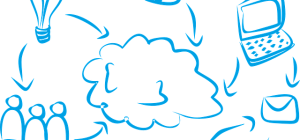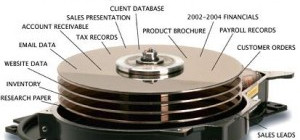It’s been around 35 years that internet is introduced to human beings. However, people haven’t still quite understood the importance of online passwords. According to a recent security study, people tend to use passwords such as “ 1234” or “ password” prominently. Sure they are easy to remember, however, it increases the risk of being hacked. If you use these types of simple passwords for securing your confidential online information, then there are chances of your data getting public in no time. Some local governments have even proposed banning the use of such weak passwords.
Mentioned below are some tips and tricks that you might use to generate a strong password for your online security.
- Make your password long
Hackers are skilled with multiple techniques that make them able to intrude your accounts easily. One of the most popular ways is to attack you personally and target your data and try to type in all the letters, numbers and symbols manually to guess your password.
Therefore, try using longer passwords as they are not only harder to guess but also quite challenging to get hacked by such “enumerating” attempts. Hackers are now using an advanced method called “brute force attack” in which the program runs through almost every possible combination of letters, numbers, symbols, etc. Therefore, the longer the password, the more difficult task is to crack it.
- Make your password a nonsense phrase
The above-mentioned point describes the importance of longer passwords. However, creating passwords with some nonsense phrases add a cherry on the cake. Choose some of the random words and create a silly yet strong password to secure your online data. If the words used in your password is neither in the dictionary nor published or are grammatically incorrect, then it becomes a nightmare for the hackers. This will prevent so-called dictionary attacks in which evildoers, instead of trying any possible combination of letters and numbers only try words one can find in the dictionary. Such attacks, if successful, drastically reduce the time it takes to break into an online account.
Always keep in mind that never use the character that is placed in sequential order on the keyboard. For example, “qwerty” as this makes it easy for the attacking system to get through it and a hack your account.
- Don’t forget to include numbers, symbols, uppercase and lowercase letters
Mixing up some random symbols and figures along with the letters will make your password unique. You might use letter O for zero or @ in place of A. If your password is a phrase, try to substitute letters with various similar symbols.
Try capitalizing each and every letter of the words used in the phrase, this might help you to remember your password always. A number of applications and online tools are available such as this versatile random password generator that help you to come up with a unique and robust password every time.
- Avoid using personal details which are obvious
If you include self-explanatory personal information in your password, then it makes it a cakewalk for the hackers. Information that might be readily available such as address, dates of the anniversaries or birthdays, the city of birth, high school, etc. must be avoided while making passwords. They are easily discoverable and might prove to be very hazardous for your online data.
On that note, if you are required to select a security answer while creating an online account, choose the one that is not obvious to anybody. Relatively simple information might be accessed by browsing through your social media accounts.
- Keep your password under wraps
This is the general rule, never ever share your passwords details with anybody. Don’t type your password onto your device when it is visible to many people. One of the most prevalent mistakes committed by people is writing their passwords over the sticky notes and plastering it near their work areas so as to remember these with ease. However, this might be now available to many people that could access your private details by logging in using this password.
- Change your password regularly
The more confidential and sensitive your data is, the more often you should change your password. Keep in mind that you don’t use the same password all over again. This will help you to keep your data more secure and hidden from the eyes of the hackers. So, try to make your password more and more complicated and change them regularly.








